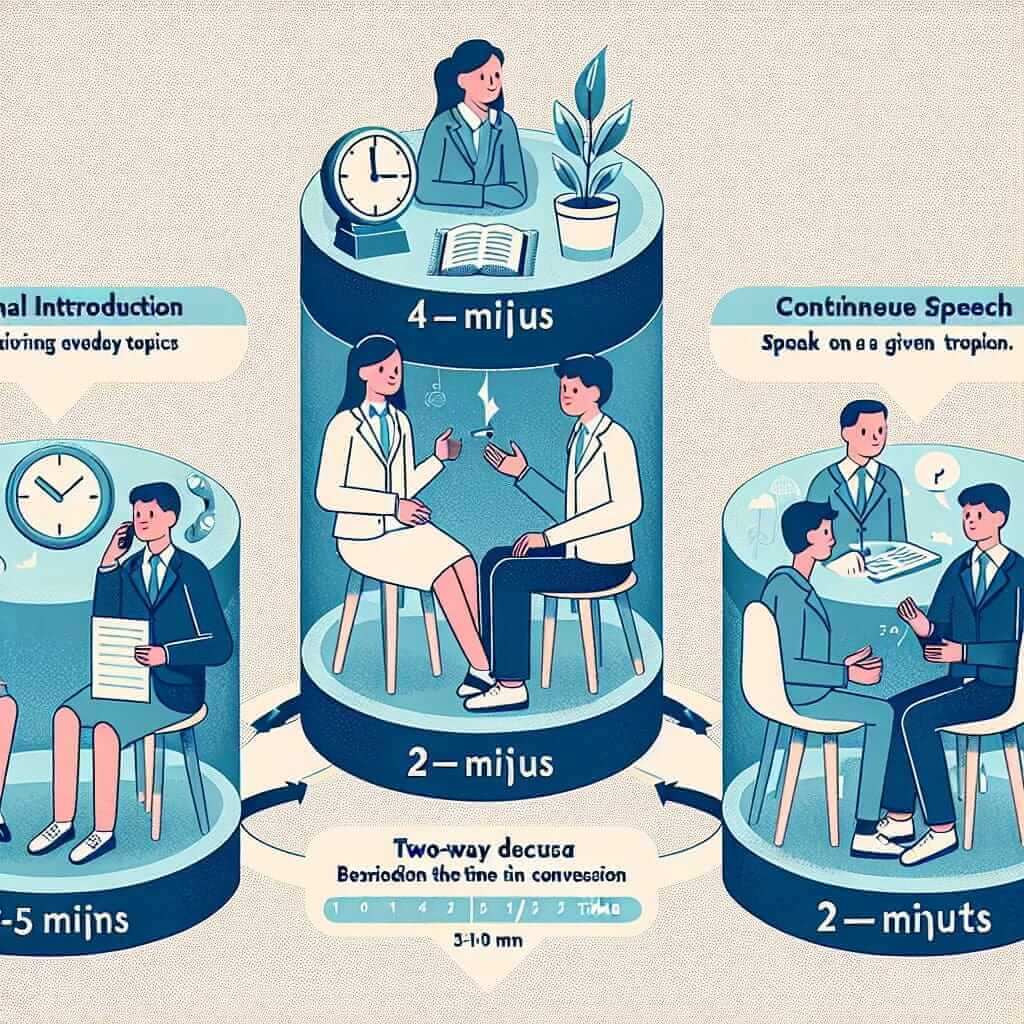The IELTS Speaking test often causes the most anxiety for test-takers, but with a structured approach and consistent practice, you can face it with confidence. As an IELTS instructor with over 20 years of experience, I’ve witnessed countless students transform their speaking skills and achieve impressive results. This comprehensive guide will delve into proven strategies, common pitfalls to avoid, and insider tips to help you excel in the IELTS Speaking exam.
Understanding the IELTS Speaking Test
The IELTS Speaking test is a 11-14 minute face-to-face interview with a certified examiner. It’s designed to assess your ability to communicate effectively in English across various everyday situations. The test is divided into three parts:
Part 1: Introduction & Interview (4-5 minutes)
You’ll answer questions about familiar topics like your work, hobbies, family, and interests.
Part 2: Individual Long Turn (3-4 minutes)
You’ll receive a cue card with a topic and prompts. You’ll have one minute to prepare a 1-2 minute speech.
Part 3: Two-way Discussion (4-5 minutes)
The examiner will engage you in a deeper discussion related to the topic in Part 2, exploring broader issues and abstract ideas.

Effective Strategies to Improve Your IELTS Speaking Skills
1. Master Fluency and Coherence
- Speak Regularly: The key to fluency is consistent practice. Converse in English daily, even if it’s just with yourself!
- Record Yourself: Listening to recordings of yourself speaking can help you identify areas for improvement in pronunciation, grammar, and fluency.
- Think in English: Avoid translating from your native language. Practice thinking directly in English to improve your response time.
- Use Connecting Words: Transition smoothly between ideas using discourse markers like ‘furthermore,’ ‘however,’ ‘in addition to,’ and ‘on the other hand.’
2. Expand Your Vocabulary
- Learn Topic-Specific Vocabulary: Familiarize yourself with vocabulary related to common IELTS themes such as education, technology, environment, and society.
- Use Idioms and Collocations: Incorporating natural-sounding idioms and collocations demonstrates a higher level of English proficiency.
- Read Widely: Expand your vocabulary and exposure to different sentence structures by reading English newspapers, articles, and books.
3. Perfect Your Grammar
- Review Tenses: Ensure you understand and can accurately use a variety of grammatical tenses.
- Practice Sentence Structures: Vary your sentence structures to demonstrate grammatical range and avoid repetition.
- Seek Feedback: Ask a teacher or language partner to review your speaking and provide constructive criticism on grammar mistakes.
4. Develop Pronunciation and Intonation
- Focus on Clarity: Speak clearly and enunciate your words properly.
- Listen to Native Speakers: Pay attention to the rhythm, stress, and intonation patterns of native English speakers.
- Practice Tongue Twisters: Tongue twisters can help improve pronunciation and articulation.
Sample IELTS Speaking Questions and Tips
Part 1 Example:
Examiner: “Let’s talk about music. What type of music do you enjoy listening to?”
Tip: Provide specific examples and reasons for your preferences. Don’t just say, “I like pop music.” Instead, you could say, “I’m drawn to pop music because I find the upbeat melodies and relatable lyrics to be uplifting.”
Part 2 Example:
Describe a time you had to overcome a challenge.
Tip: Structure your response using the framework provided on the cue card. Use this minute to jot down key points and vocabulary you want to incorporate.
Part 3 Example:
Examiner: “Do you think technology has made it easier for people to learn new things?”
Tip: Express your opinions clearly and support them with examples and reasoning. It’s okay to acknowledge both sides of an argument, but ensure you convey your stance effectively.
Conclusion
Success in the IELTS Speaking test is achievable with focused effort and consistent practice. By following these strategies and tips, you can gain the confidence and skills needed to perform your best on exam day. Remember, the examiner is not trying to trick you but rather to assess your ability to communicate effectively in English. So relax, be yourself, and let your personality shine through.